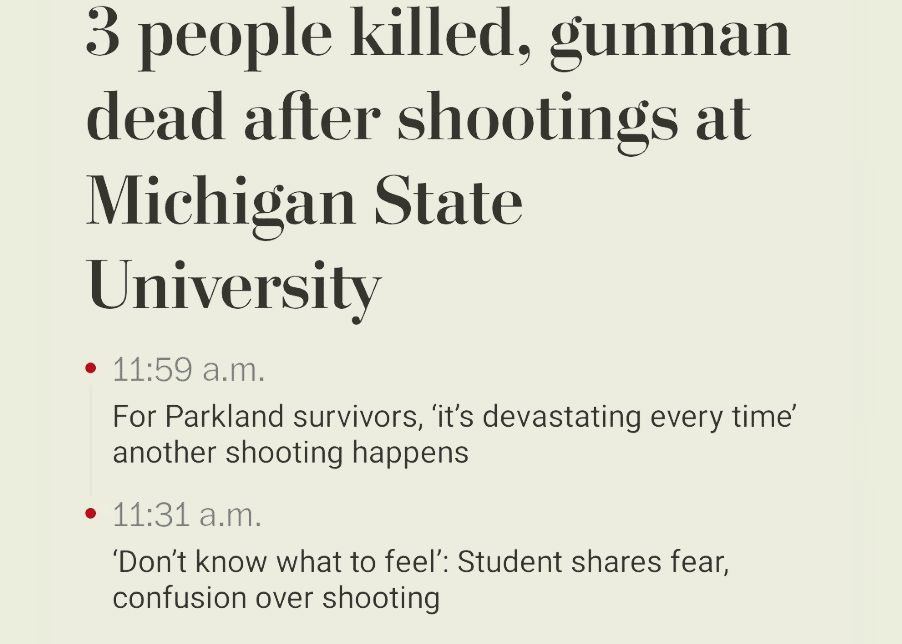In an opinion piece in the Washington Post, the philosopher Émile P. Torres speculates about the likelihood of AI research accomplishing, within the foreseeable future, the development of Artificial Superintelligence (ASI), and whether that would be not only beneficial but also dangerous, and says,
Surely no research organization would design a malicious, Terminator-style ASI hellbent on destroying humanity, right? Unfortunately, that’s not the worry. If we’re all wiped out by an ASI, it will almost certainly be on accident.
I find this puzzling. How can any intelligent, thinking human being doubt, in the face of two world wars, the holocaust, numerous other wars and acts of terrorism since then (most notably the Russian attack on and invasion of Ukraine), and an increasing number of leaders who, in the event of an election loss, would likely do a Trump and suggest to their followers that they they should storm and occupy the democratic institutions of their country, that if a technology like ASI existed or was within reach, someone would not try—and probably succeed—to exploit this technology for nefarious ends?
In 1942 the Russian-born American scientist and science fiction writer Isaac Asimov invented his “Three Laws of Robotics” which say,
- A robot may not injure a human being or, through inaction, allow a human being to come to harm.
- A robot must obey the orders given it by human beings except where such orders would conflict with the First Law.
- A robot must protect its own existence as long as such protection does not conflict with the First or Second Law.
In the eighty years since then numerous systems have been invented which, while not humanoid in form like most of Asimov’s and other science fiction writers’ robots, are nonetheless in a real sense robots as Asimov had in mind in formulating his laws but which do not abide by these laws, with many of them, like the quadruped military robot Cheetah or autonomous drones like the MQ-1 Predator, being expressly designed to harm humans or assist with harming them. Wikipedia even has an article on the Artificial Intelligence arms race which evidently is a thing.
These are powered by our current Artificial Intelligence systems and generally are only capable of performing one specific task; in this they are still sub-human machine intelligence, yet in the wrong hands they can wreak devastation. Many scientists are now working on human-level machine intelligence, on a par with human intelligence, and predict success within the next fifty years or so; others are already working on Artificial General Intelligence (AGI) as a stepping stone to Artificial Superintelligence which will far surpass human intelligence.
Torres recognizes and describes in his article the ways that such ASI systems could, strictly by accident, wipe out the human race (which from a purely naturalistic perspective would of course not be evil because there would be no human beings left to suffer), and for this reason recommends that governments should stop all research on AGI and ASI.
I don’t believe that this will happen. It might happen if all governments had only the common good at heart; this is totally unrealistic, just look at Vladimir Putin, China or North Korea but also, as lesser, more harmless examples, our own politicians who as often as not are motivated by their country’s, their party’s or even their own good rather than the common good.
And even if all governments halted and prohibited such research, how do you ensure that some rogue actors don’t continue to research and develop such systems, without resorting to the repressive measures of a police state?
And once such systems exist, the biggest danger won’t be the annihilation of the human race but the use of this ASI to oppress and cause great harm to a still existing human race.
The Christian Scriptures predict a time of great tribulation (Mt 24:21, Rev 7:14) immediately prior to the return of Christ, and the havoc wreaked by ASI may well form part of that tribulation; as Christians, whether we believe in the rapture (1 Thess 4:17) or not, we still have hope in the face of that prospect because we know that Christ’s ultimate victory over sin, sickness and death is assured (Rev 20:11-15; Rev 20).
Banner Photo by Michael Dziedzic on Unsplash


 Photo & Clipping Credit: Washington Post website
Photo & Clipping Credit: Washington Post website